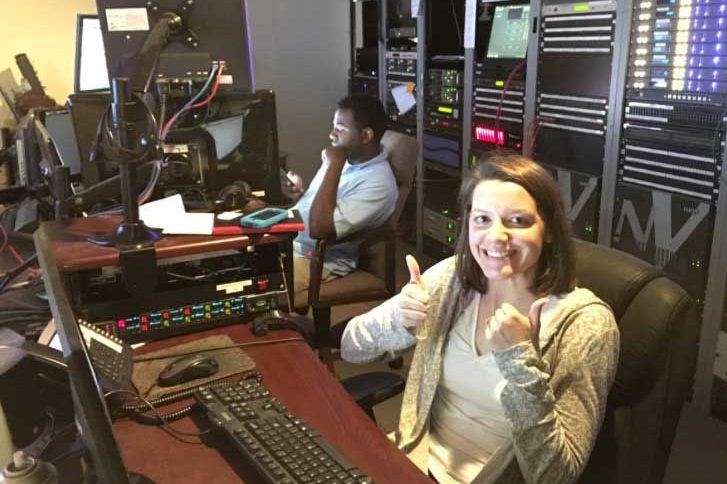
How four weeks of an internship turned into a job offer
Graduating from college is a mixed bag of emotions.
On one hand, you are relieved to be finally done with school. No more final exams, no more term papers, no more last-minute assignments due before 3 p.m., that’s all over.
The other end of that spectrum is a sense of dread. Most graduates have been in school from the time they were 5-years-old until the day they walk across the stage. What does one do after college?
For most graduates, the first thing on their minds is getting a job. Personally, that is what I wanted, but because I had made it to my senior year with no prior internship or journalism work outside of a school publication, I had limited qualifying experience to put on a resume.
Fortunately, I got a summer internship through the Ole Miss Producer Internship Program and started work at WTVA-News in Tupelo, Mississippi, just days after graduation. Doing a post-graduate internship does mean a little extra schoolwork, but it gives you a chance to actually experience the industry you hope to join. Summer internships usually last anywhere from six to eight weeks, but in that time frame an intern may gain enough viable information to get a job.
One of the first tips I would offer to any intern is to ask as many questions as possible. It sounds like one of the most obvious things to do, but it is also one of the things students sometimes overlook. By asking a ton of questions, an intern looks like he or she truly wants to be there and is ready to start a career.
Another tip I can offer is to ask for as many hours as you can get. For my internship, I had to put in a minimum of 20 hours per week. I chose to work 40 hours a week, a full-time shift Monday through Friday, and I would not have traded it for anything in the world. The reason I made myself available for that much time is that an internship is one of the only opportunities students have to gain experience that could lead to a job. Working an 8-hour day gives an intern a chance to learn what it feels like to work there, too.
I also did not want to be classified as that intern who sat around on her phone and just waited for the time to fly by. I wanted to do what the other reporters and producers did, no matter the task. I saw another intern who was there for just a couple of hours a day who, for the most part, was on the phone the entire time while a videographer was trying to teach that person how to edit.
I constantly kept myself busy by looking up potential news stories, writing some simple stories for the newscasts, stacking shows and asking constantly, “Is there anything else you guys need me to do?” I would not leave until I made sure there was not another thing I could do for the day.
The news director I worked under for WTVA said that when I walked in on the first day, he felt like I was just a regular staff member for the station. I wanted to jump in and feel like I was part of the crew, and I did. I observed everything my producers did, and after a while, I was left alone to do some of the newscasts (granted, the night-side producer got married three weeks into my internship so I had to do the shows by myself, but I digress).
If an intern goes into it thinking that it is just for college credit, he or she will gain less from the experience. I wanted to be a part of the news industry, and I came across that way to the staff at WTVA. The headline does say it took four weeks for me to get a job. Well, I was fibbing a little bit; it took four weeks and one day. Four weeks after my first day, I did my first live shot ever on TV. After that, I received the job offer. The news director said it felt like I was already a part of the station, all he had to do was make it official.
Students in the broadcast journalism emphasis at the Meek School are required to do an internship, and all other majors are encouraged to gain internship experience. If you are interested in learning more about the Ole Miss Producer Internship Program, feel free to contact Prof. Deb Wenger at drwenger@olemiss.edu.
